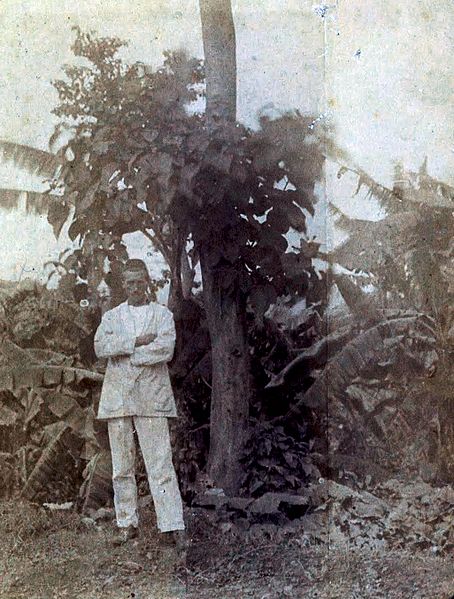Le Bateau ivre is a 100-line verse-poem written in 1871 by Arthur Rimbaud. The poem describes the drifting and sinking of a boat lost at sea in a fragmented first-person narrative saturated with vivid imagery and symbolism. It is considered a masterpiece of French Symbolism.
Image: Bateau Ivre Paris 4
Image: P1110482 Paris VI rue Ferou le bateau ivre rwk
Jean Nicolas Arthur Rimbaud was a French poet known for his transgressive and surreal themes and for his influence on modern literature and arts, prefiguring surrealism. Born in Charleville, he started writing at a very young age and excelled as a student, but abandoned his formal education in his teenage years to run away to Paris amidst the Franco-Prussian War. During his late adolescence and early adulthood, he produced the bulk of his literary output. Rimbaud completely stopped writing literature at age 20 after assembling his last major work, Illuminations.
Rimbaud on the day of his First Communion
Plaque erected on the centenary of Rimbaud's death at the place where he was shot and wounded by Verlaine in Brussels
By the table, an 1872 painting by Henri Fantin-Latour. Verlaine is on the far left and Rimbaud is at the second to left.
Rimbaud (self-portrait) in Harar, Ethiopia in 1883.






